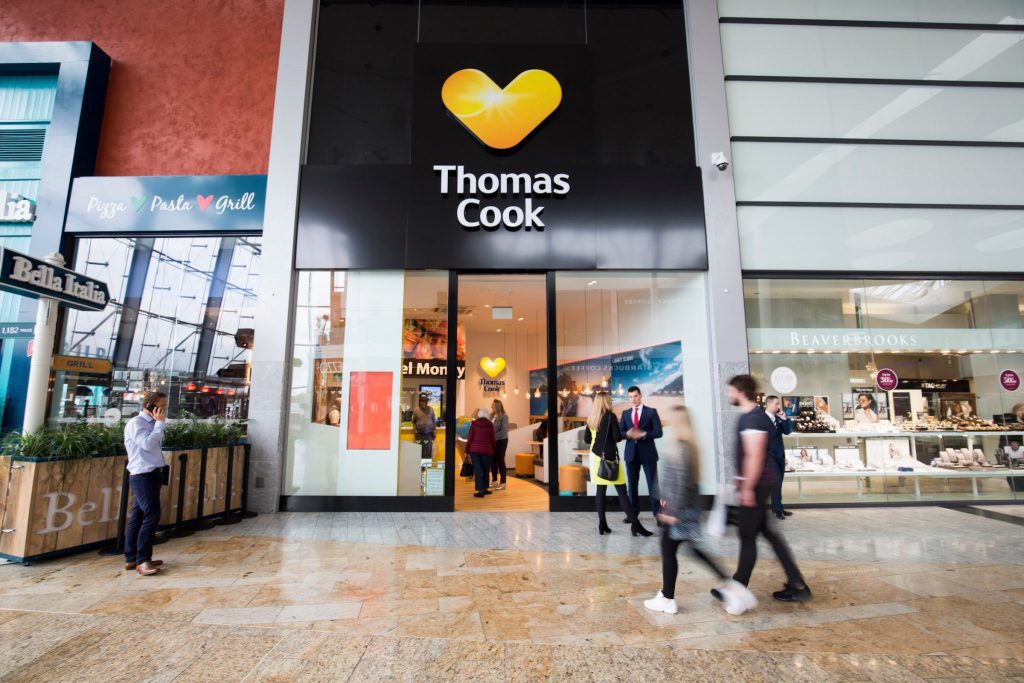Skift Take
Offering vacation rentals to customers might be some way off, but it shows Thomas Cook is at least thinking creatively about its place in the travel industry. If it is something people want — and they clearly do — then the company needs to at least consider it.
Thomas Cook Group is hoping to use its partnership with Expedia to start offering vacation rentals to its customers.
The two companies announced a formal alliance back in September 2017, which went live this summer. Initially the deal covered shorter getaways and Thomas Cook’s hotel-only offering, with Expedia providing the technology and inventory. But both sides are now looking to expand the relationship.
Expedia said in a statement that it would “add select Thomas Cook sun and beach hotels to our available inventory,” but declined to go into any further detail about when, and in which markets. Thomas Cook also envisions the partnership deepening over time.
“One of the elements of the contracting allows us to distribute our package holidays, as well, onto their [Expedia’s] sites,” Paul Hemingway, business change director at Thomas Cook, told Skift.
“So that’s another area where we see an opportunity to boost the distribution of our package sales. Expedia at the moment, in some markets, is more mature than [in] others around the sale of package holidays, alongside their dynamic packaging.”
(Traditional tour operators like Thomas Cook and TUI package up their own vacations—many of which include flights on their owned airlines, whereas dynamic packaging is a comparatively new idea, allowing consumers to put together their own combination from a selection of airlines and hotels.)
“We’ve got lots of opportunities where we can see how we can work more closely together on other elements that maybe aren’t the main holiday. Elements like… the ancillaries and areas like that where we both work with providers to add ancillary sales to the core holiday, be it insurance or airport hotels or parking.”
But perhaps the most eye-catching development would be Thomas Cook using Expedia-owned HomeAway to supply it with vacation rentals.
“The very longer-term opportunity is around areas like private accommodation. So Expedia owns HomeAway and we see potential trials around trying to look at what opportunities that gives us for an entirely different customer to target some of those private accommodations.
“That’s in the longer term we’re right at the first stages of trying to sketch out what that could like. But if you look at where the significant growth is, the likes of Airbnb or HomeAway, there’s significant growth in those areas. We’re obviously talking to Expedia about what that could look like and try to tap into that. But there’s a whole host of challenges we need to overcome before getting to that point.”
The success of Expedia-owned HomeAway as well as Airbnb has prompted much soul-searching within the traditional travel industry and the prospect of Thomas Cook getting involved is certainly interesting. Would it ever envisage packaging up a Thomas Cook flight with a HomeAway vacation rental and would there be any regulatory restrictions on such an offering?
Thomas Cook’s Centralization
As well as potentially giving it access to a totally new type of vacation product the Expedia deal is another example of Thomas Cook moving from a collection of geographically distinct tour operators into a centralized travel company (much like TUI).
Using Expedia to supply its city break, domestic and hotel-only sales, replaces a fragmented, source market-specific approach.
“Previously, it was very much market by market,” Hemingway said.
“We’d done some consolidation in Europe. So, we had a central procurement and contracting organization for the majority of the central European business. But the UK was entirely separate and the Nordics was entirely separate as well.
“And the platforms that they were operating on weren’t the same platforms. So, if you contracted a city hotel, in one market, for example, that contract was exclusive in the main to that single market, and therefore, no other markets had access to that.”
Creating a more unified approach around city breaks is the latest attempt to create a stronger central organization. In 2013 Thomas Cook adopted a new “sunny heart” master brand that it has gradually deployed across its source markets. Previously they had been much more separate, a legacy of Thomas Cook and its predecessors’ growth through acquisitions.
In the same year it also merged its various airlines.
Win-Win Situation
Hemingway said the deal involved a share of revenue rather than a one off payment and it is easy to see why the deal is attractive to both parties.
Thomas Cook can focus on what it does best: sun and beach vacations and it also gets access to 60,000 more hotels. Expedia gets bookings for comparatively little effort.
“Thomas Cook is very good at driving direct traffic: in the UK 83 percent of sales are made through Thomas Cook channel and only 11 percent of search traffic is paid for,” Richard Clarke, senior analyst at Bernstein, said in a note to investors earlier this year.
The Daily Newsletter
Our daily coverage of the global travel industry. Written by editors and analysts from across Skift’s brands.
Have a confidential tip for Skift? Get in touch
Tags: expedia, homeaway, thomas cook, vacation rentals
Photo credit: A Thomas Cook store in Glasgow, Scotland. The company wants to deepen its partnership with Expedia. Thomas Cook Group
